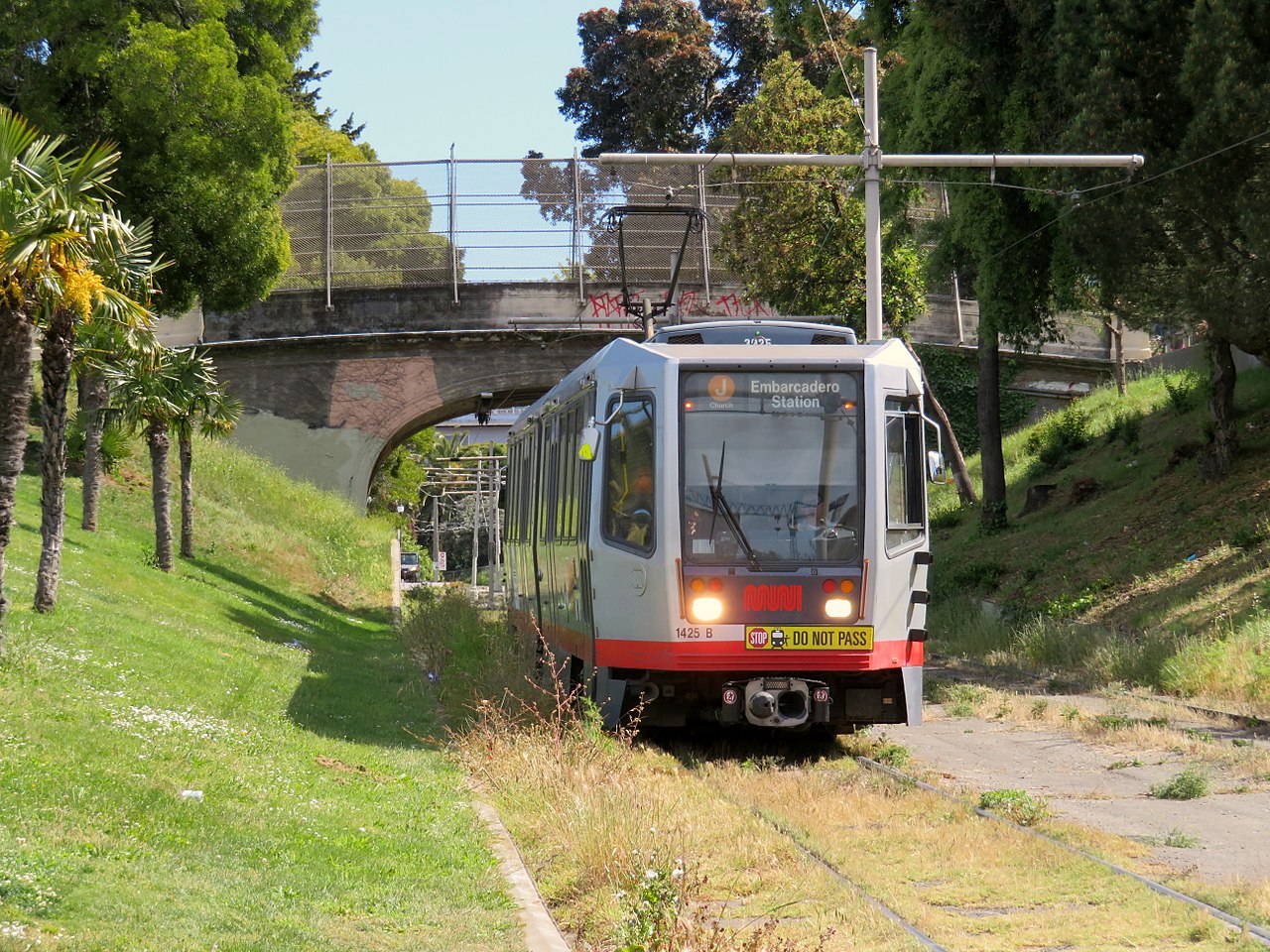Imagine a city where parents feel comfortable letting their kids bike, walk or take transit to school. Where morning commuters don’t have to budget an additional thirty minutes just in case their train breaks down in the subway. Where not one more grandmother is killed by traffic violence.
On June 7, San Franciscans have an opportunity to vote 'yes' on Proposition A for a faster, more reliable transit system and safer streets for walking, biking, and rolling. It would dedicate $286 million to modernize our aging transportation system, prevent infamous subway breakdowns, and support Muni’s conversion to clean, zero-emissions buses. It will also dedicate $114 million to life-saving traffic safety projects on San Francisco’s most dangerous streets, many of which are located in the city's low-income and Black, Indigenous, People of Color (BIPOC) communities such as the Tenderloin, Chinatown, and the Bayview. These formerly redlined neighborhoods were torn apart to accommodate faster car traffic on streets and freeways that bisect their communities. As a result, people in these communities are more likely to die of traffic-related crashes and face higher rates of asthma, cancer, and cardiovascular disease due to poor air quality. In fact, there are more than 80 miles of high-injury streets in San Francisco that have yet to receive comprehensive safety fixes.
That’s why Proposition A is also an investment in a sustainable and equitable future. Biking, walking, and transit represent one out of every two trips taken in San Francisco, but less than one percent of all GHG emissions. Despite that, transportation accounts for 47 percent of San Francisco’s emissions, largely driven by personal car use. Lack of community-led transit investment means people in communities like the Bayview and Excelsior - which contain more low-income and minority households on average than the city as a whole - are forced to either pay additional transportation costs in time via an extremely long commute or money from owning and maintaining a car.
When our streets aren’t safe for walking, biking, and rolling and our buses and trains continue to be hindered by congestion from private vehicles, it is lower-income residents, seniors, Black, Indigenous, people of color, and transit-dependent riders who are disproportionately burdened. To meet our climate and equity goals, we have to double the number of low-carbon trips by 2030 and prioritize transit reliability and street safety in our most vulnerable communities. Prop A would help make these goals a reality while reducing traffic congestion for people who still need to drive.
One of the biggest concerns we hear from people about Proposition A is that due to the pandemic, we shouldn’t be investing in our public transportation system. As organizations that collectively represent the over 332,000 people that still bike, walk and take transit every day in San Francisco, it’s important to push back on this critique. Even as travel patterns have changed during the pandemic, transit, biking, and walking still provide vital connections to our communities, our libraries, our grocery stores and our schools. As we recover from the pandemic, that need will only grow. In fact, several studies have suggested that working from home may actually increase overall travel as people swap a routine downtown commute for more ad-hoc shopping and social trips closer to home.
The other concern we often hear relates to making sure our taxpayer money is spent well. The good news is that Proposition A would not raise taxes because it is funded out of the city’s existing bond program. Also, to ensure accountability, the spending of GO bond revenue will be overseen by an independent Citizens’ Oversight Committee. In addition, all GO Bond funds are subject to approval by the Board of Supervisors. The projects funded in Proposition A come directly from the will of voters, who have repeatedly stated that safe street and Muni reliability investments are their top priorities. Prop A also makes the city competitive in winning hundreds of millions of dollars in additional funding for these priorities from new state and federal sources, such as the Biden Administration’s Infrastructure Investment and Jobs Act.
San Francisco will never be the same post-pandemic, but as we look to the future, a revitalized, sustainable transportation system that ensures a safe, reliable trip for all San Franciscans is essential. Vote 'yes' on Proposition A on June 7th.
***
Zack Deutsch-Gross is the Policy and Community Investments Director at San Francisco Transit Riders, Jodie Medeiros is the Executive Director of Walk San Francisco, Janelle Wong is the Executive Director of the San Francisco Bicycle Coalition





